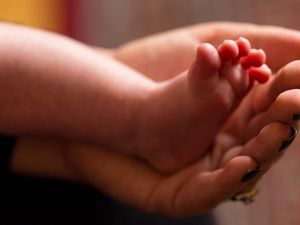Safety improvements needed in one in five maternity units – watchdog
Data suggests 38% of maternity services are rated as ‘requires improvement’ in terms of the safety of care offered to women and babies.

Two in five maternity services are not doing well enough in terms of safety, the health watchdog has warned.
Care Quality Commission (CQC) data show that 38% of maternity units “require improvement” when it comes to safety.
And 1% are “inadequate”.
The chief inspector of hospitals in England warned that without improvements in culture there could be a “constant stream” of maternity services running into difficulties.
Professor Ted Baker said that some elements of poor care identified in the review into the Morecambe Bay maternity scandal, issues to do with dysfunctional team working, a defensive culture and poor investigations with no lessons being learned, were still being found in other maternity services.
The Health and Social Care Select Committee heard damning evidence from safety experts, health officials and a grieving mother on maternity safety in English hospitals.
MPs heard how some units are “concealing” failures in care for women and babies.
They also heard from grieving mother, Michelle Hemmington, who described her treatment when her baby died from hypoxia.
Ms Hemmington, co-founder Campaign for Safer Births, described the death of her son Louie in 2011, half an hour after he was born.
She described how she fought for four and a half years to get the recognition from the hospital that it caused the death of her son, but she did not receive a formal apology.
Failures which led to her son’s death included staff not following resuscitation guidelines and a failure to monitor foetal wellbeing.
“Losing Louis is something I will never fully recover from,” she said.
“I feel his loss every day.”
MPs were also told about a culture of defensiveness at some hospitals.
Some prefer to apportion blame rather than learning lessons when they fail, the committee heard.
Dr Bill Kirkup, who led the review into the maternity scandal at Morecambe Bay and is leading a review into services in East Kent, said that there is a “spectrum” of performance across maternity services.
He told MPs that some trusts were “actively concealing” poor care.
“My view is that a lot of it does lie in the leadership of those units and the fact that they become isolated.
“Nobody can quite spot what’s happening,” he said.
“And part of the reason for that is, I think that this is difficult territory, but there are some units that actively conceal what they’re doing.
“When they get in sufficient trouble, their response is to stop communicating with the outside world and to disguise the failings that they’ve got.
“I think they do that with the intention that they can sort it all out themselves, or they have to tell me but but it’s quite difficult to get past that barrier I think when you get into that slippery slope of declining standards.”
Prof Baker said CQCs 2017 maternity report it identified similar problems to those identified at Morecambe Bay in a “proportion” of other units inspected.
These included problems of “dysfunction, poor leadership and poor culture”.
“There are elements of that we find in as we go around inspecting services,” he told MPs
“And at that stage we said ‘this is more prevalent, this is not just a few units, this is significant cultural issue across maternity services’, not in all services, there are some services that are providing much better care.”
Inspectors are still finding units where training and competency of staff is “not adequate”, he said, adding: “And I think this is really disappointing because this has been highlighted for a long time, and staff in some of these units do not have the training they need to do the job that they’re being asked to do.”
He said that “defensive” culture” in healthcare has meant that some maternity services not being transparent and not admitting when things have gone wrong.
On the safety figures, he added: “There is a significant number of services that are not achieving the level of safety they should.
“And I think there’s a real concern that, with the cultural issues, if we do not turn them around, we will have a constant stream services, run against difficulties because of extra pressures they face.
“But we know we can do it if we can change the culture, I think that is the challenge that we have to get right.”
He added: “It’s easier to blame someone than accept this is a systematic problem.
“Finding someone to blame excuses them from investigating that and finding the systematic issues.
“Anything that drives this defensiveness and blame is dangerous for services.
“We need to do everything we can to eradicate blame from the system.
“We’ve got to accept humans are fallible and will make mistakes, the important thing is to make sure we learn from those mistakes.”





